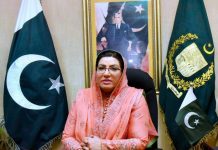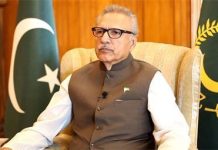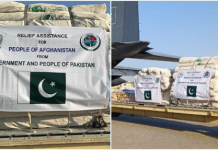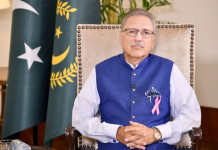KARACHI: The National Commission for Human Rights (NCHR) is preparing a draft to award equal rights to transgender people, stated Ali Nawaz Chauhan, NCHR Chairman, on Thursday.
Addressing a press conference at the Karachi Press Club, he said the commission is working to resolve the issues faced by transgender people.
“Their families disown them and they have no livelihood opportunities, so they indulge in begging or prostitution. They live in inhumane conditions without any social protection. They should not be condemned like this,” he added.
“We recommend the government to set up training centres for transgender people.”
Shelter centres for transgender people are currently closed and the provincial government has pledged to reopen such centres. “We have suggested setting up a special police station for transgenders where they can file complaints against any injustice done to them.”
He shared that during a recent visit to Karachi, NCHR members visited prisons and attended various meetings – including one with affectees of Gujjar Nullah.
The commission has asked the KMC and provincial government of Sindh to provide compensation to the affected families, he added.
The commission members visited Gadani ship breaking yard and met representatives of workers, owners and the provincial government.
“We have emphasized for the provision of labour rights and labour inspections,” he said, adding that the provincial government has assured a ship breaking authority is being set up to look at the affairs of the yard.
The commission also heard the representatives of trade unions, who affirmed that before the deadly accidents at the ship breaking yard, there were no health and safety facilities for the workers. He pointed out that the Customs Department recovers Rs 13 billion customs duty from the Gadani ship-breaking yard annually. If it is regulated, government revenue will further increase.
“As a commission we would propose that both federal and provincial governments should work together to improve working conditions of labourers at Gadani ship breaking yard. Skilled workers are mostly Bengali, so they do not have identity cards. Special identity cards or work permits shoukd be issued to Bengali workers.”
The commission members visited all three jails in Karachi. In Central Jail the inmates are housed in large number. There are more prisoners than the capacity of the jail. The women jail’s condition is better because the population of the jail is less than the capacity. He pointed out that in the juvenile jail the inmates are provided with education, however the curriculum of jail schools is quite objectionable. “We saw the books on Islamiat, which are printed in Jhang and other cities of Punjab, where a particular school of thought prevails. We have collected copies of the books and will discuss this with the provincial government.”















